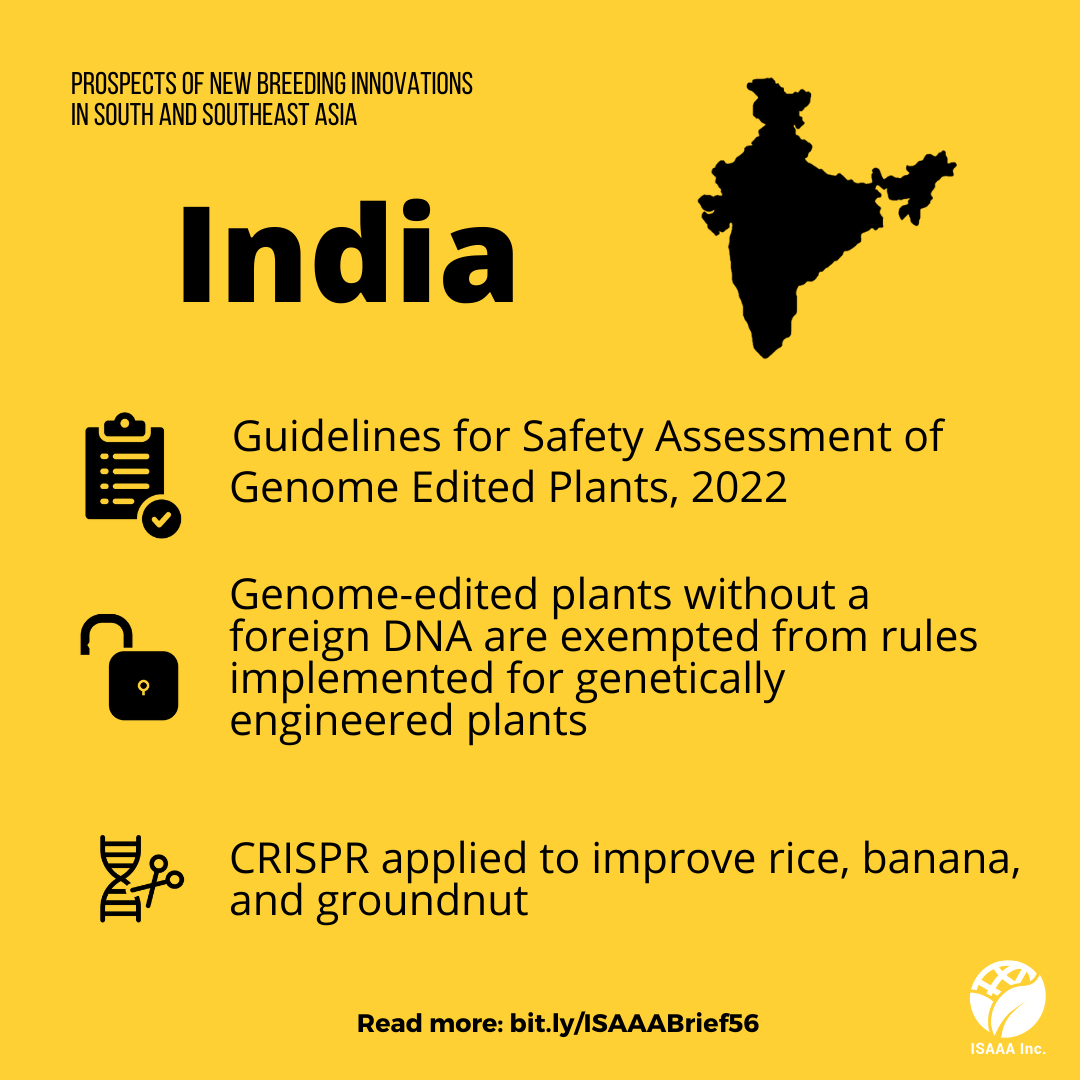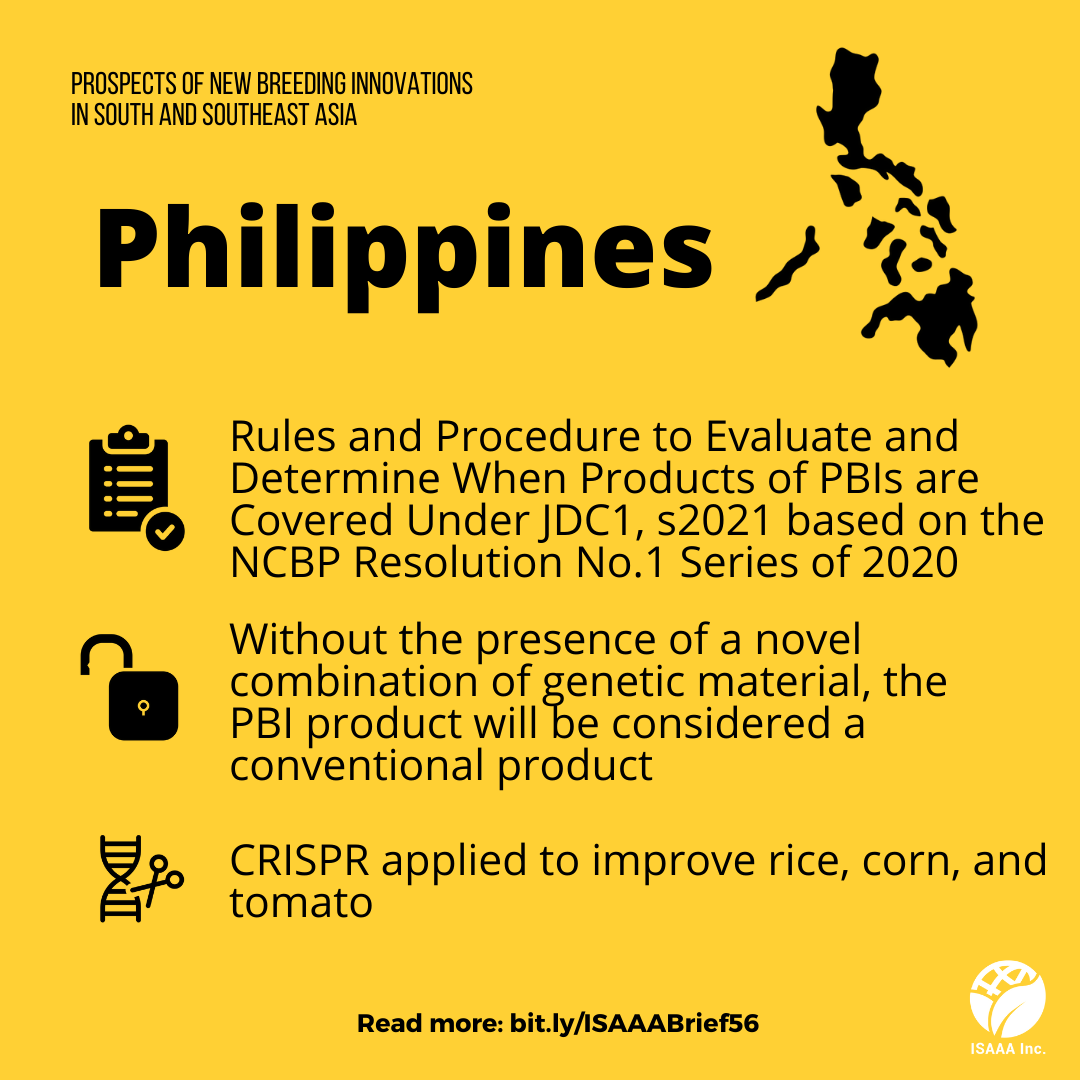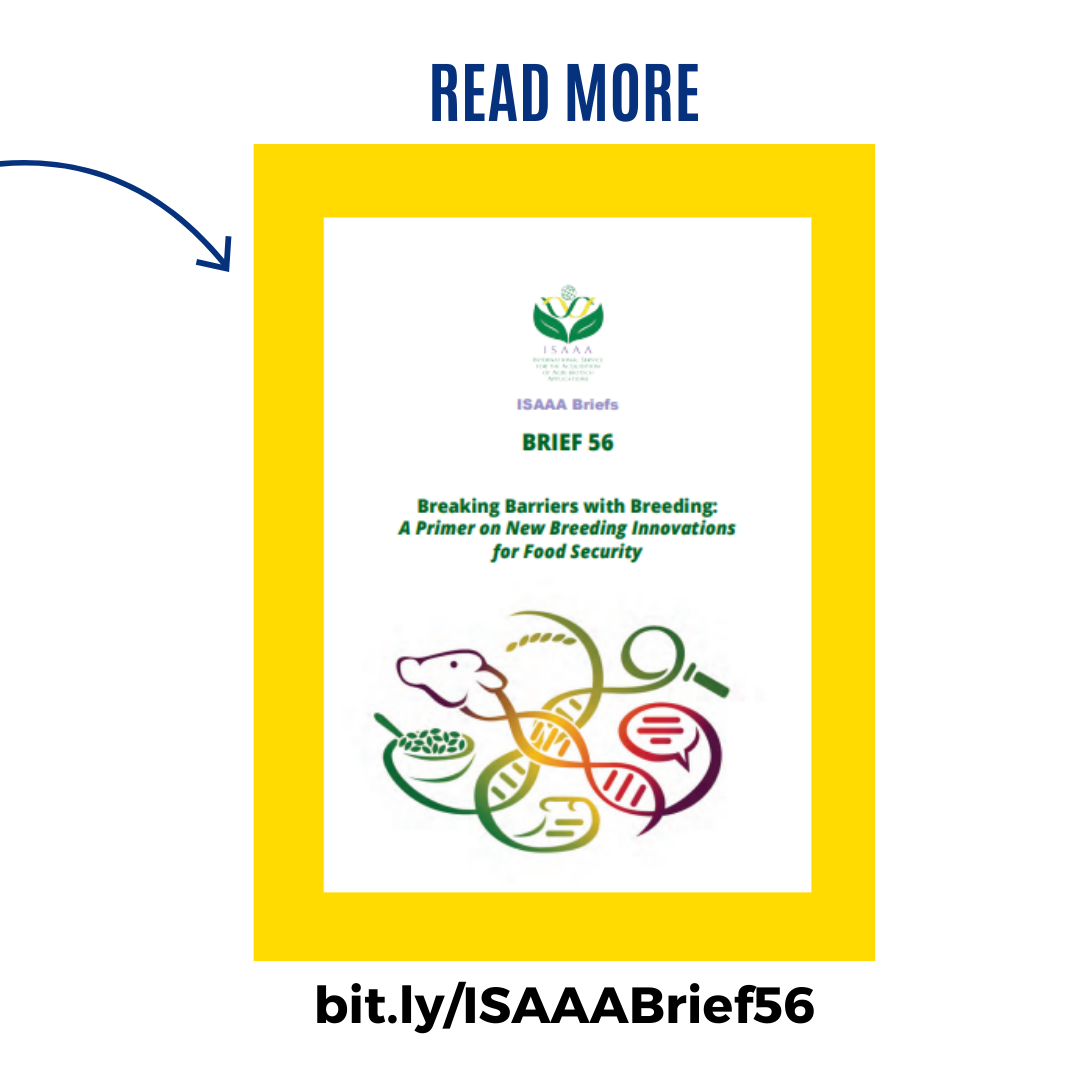Genome Editing in South and Southeast Asia: To Regulate or Not to Regulate?
| |
What is the future of genome editing in South and Southeast Asia? Will the biotech adopting countries consider genome-edited products as GMOs or not? What are the hurdles in creating new guidelines for products of new breeding techniques?
These are just some of the questions answered by Philippine Seed Industry Association Executive Director, Gabriel O. Romero, PhD, in the chapter titled Prospects of New Breeding Innovations in South and Southeast Asia featured in Breaking Barriers with Breeding: A Primer on New Breeding Innovations for Food Security (ISAAA Brief 56).
Expectation: Biotech adopters receptive to genome editing

According to Dr. Romero, countries that have been adopting genetically modified (GM) crops are expected to be the most receptive to genome-edited products, because they have formulated policies that can serve as stepping stones towards development of policies for genome editing. At present, only one country each from South and Southeast Asia has released a clear stand on genome editing regulation:
India. India has adopted biotechnology and is involved in R&D of emerging applications like genome editing. On May 20, 2022, the country released a suitable, science-based guideline for genome-edited products. According to the guidelines, genome-edited plants without a foreign DNA are exempted from the rules applied to genetically modified plants.

Philippines. The country has been known as a crop biotechnology leader in Asia in cultivation and direct use of GM crops. Local research in genome editing is also gaining momentum. In May 2022, the country implemented the rules and procedures for the evaluation of products of plant breeding innovations (PBI), which states that PBI products without the presence of a novel combination of genetic material are considered as conventional products.

Other biotech adopters in South and Southeast Asia such as Pakistan and Vietnam have not released clear policies on genome editing. However, the National Institute for Biotechnology and Genetic Engineering in Pakistan has started applying genome editing to improve rice varieties. “Vietnam is a relatively newcomer in GM crop cultivation, but it can be considered an early bird in genome editing,” Dr. Romero notes. The Agriculture Genetics Institute in Vietnam stresses the potential of genome editing to significantly improve the efficiency and timelines of breeding programs.
Reality: Hurdles in developing new guidelines for genome editing

Dr. Romero pointed out the obstacles that could be encountered in developing new guidelines. He enumerated the following hurdles:
- Legal. The existing biotech policy in the country may be broad and encompassing that can be interpreted as covering genome editing. Amendments may be necessary to make them suitable for genome editing.
- Political. Formulation of new guidelines might not come as a priority when the current government and agriculture agency heads are passive, neutral, precautionary, or even sympathetic to biotech critics.
- Socio-economic. Influential social-economic experts do not consider biotech products to be more advantageous than conventional varieties. Documented advantages of biotech products are vital in encouraging adoption.
Since most of the countries in South and Southeast Asia are yet to adopt GM crops, genome editing could be considered an a direct extension of conventional breeding methods. Dr. Romero said that minimal adjustments can be made in the regulatory framework for conventional varieties to accommodate genome-edited products, which are developed to benefit farmers, consumers, and the environment.

Read more from ISAAA Brief 56. Join the conversation on this topic on Facebook, Twitter, and Instagram using the hashtag: #ISAAABrief56.
For further reading:
India’s genome editing guidelines | Crop Biotech Update
Philippine’s PBI guidelines | Crop Biotech Update
| Newer Post | Archive | Older Post |
Science Speaks is ISAAA Inc.'s official blog. Weekly blog articles, authored by ISAAA writers, partners, and invited contributors, aim to help share, disseminate, and promote scientific knowledge and its vital role in achieving global agricultural sustainability and development. Your support to Science Speaks will help us achieve this goal. You can help us by donating as little as $10.

